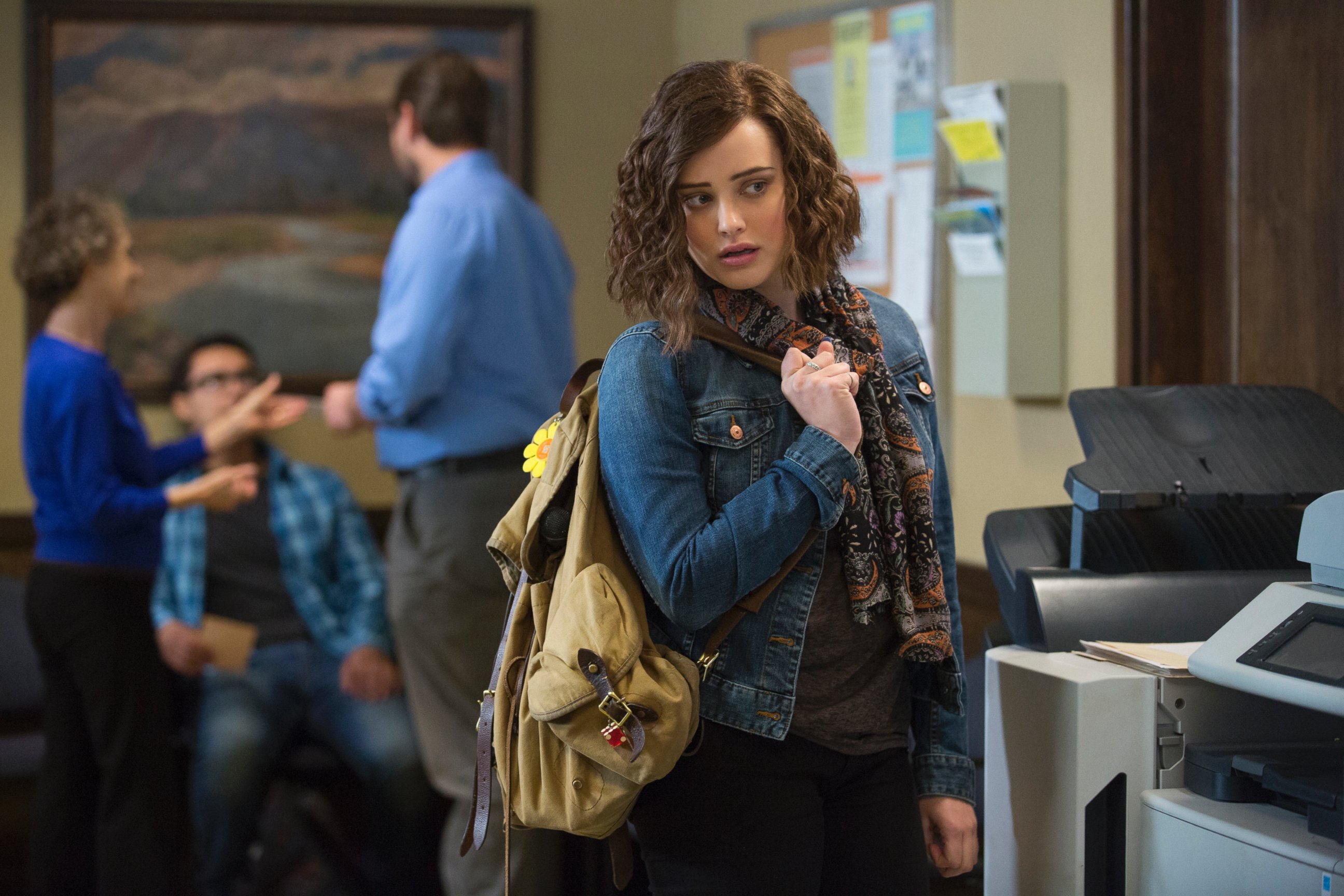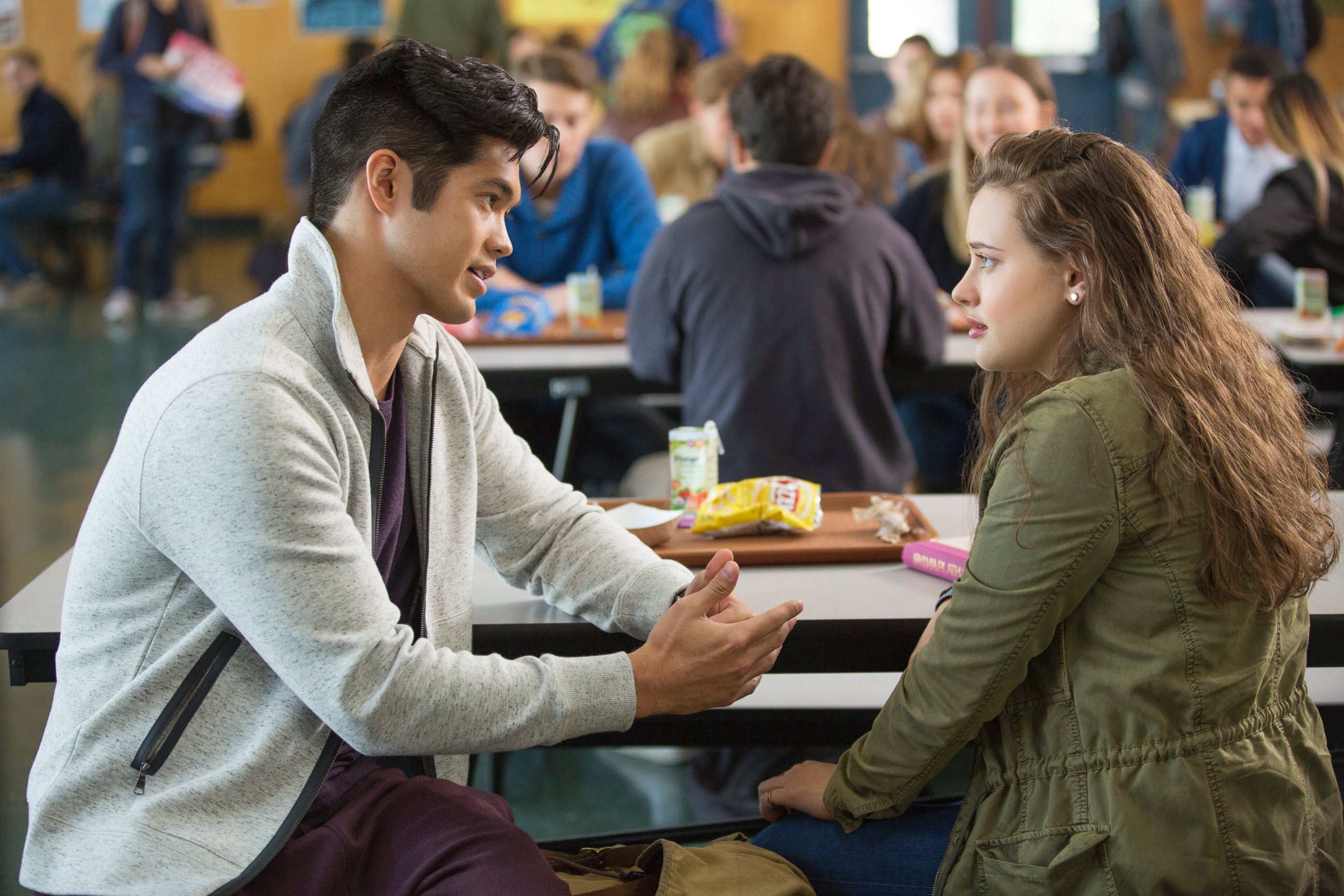Inside '13 Reasons Why,' the Netflix show that tackles teen suicide
Mental health experts weigh in on the show currently streaming on Netflix.
— -- "13 Reasons Why" is Netflix's latest original offering that has everyone talking.
The 13-part serial, inspired by the 2007 book of the same name, examines teen bullying, sexual assault and suicide. It tells the story of Hannah, played by newcomer Katherine Langford, who takes her own life after more than a year of social abuse at school, both online and in person. Knowing that those around her would be grappling for answers, Hannah leaves behind a series of audiotapes for protagonist Clay (Dylan Minnette) detailing why she killed herself.
In less than a week, the show, which has a cast of mostly young adults and was executive-produced by Selena Gomez, has created a stir among viewers and television critics alike. Curious about what to expect? ABC News takes you inside the series -- and why it offers an important take on bullying and mental health issues.
What is the show about?
"13 Reasons Why" is told through the eyes of Clay, who receives a number of tapes posthumously from his crush, Hannah. Each tape centers on a person who contributed to Hannah's death.
At the start of the series, Hannah had just gotten into town and things start to head south for her right from the get-go. She meets Justin (Brandon Flynn), a charming high school athlete, who becomes her first kiss. But Justin then allows his friend Bryce Walker -- the school's All-American good guy and star -- to release a sensitive photo to the rest of the students via text. Things only unravel from there.

What mental health professionals say about the show
Virginia-based clinical psychologist Dr. Frank Russell wasn't surprised by the characters like Justin and later Zach, an athlete with Ivy League aspirations who only bullies Hannah out of loneliness. Russell told ABC News that most bullies live in a gray area and "aren’t necessarily without conscience."
"The problems with bullying in general, if there is an increase in social status when they bully, is that reinforces the action and they are more likely to do it again," he told ABC News. "They often bully because they have insecurities themselves. Most of the time, I don’t believe these bullies are really trying to get someone to kill themselves."
Russell also appreciates the inclusion of smartphones and newer technology in the Netflix series, something that wasn't in the book when it was published over a decade ago.
"In my opinion, I believe it increases the amount of bullying," he said of camera phones and even social media. "In emails, you are likely to say things you might not say if face to face. It offers people more of an opportunity to bully. It's not anonymous, but there's a degree of separation."
Nekeshia Hammond, a Florida psychologist, touched upon protagonist Clay, who never did anything to hurt Hannah. Clay didn't see warning signs of Hannah's depression, and Hammond noted that that's not uncommon.
"A lot [of] times, too, teens what they do is try to put their friends into secrecy mode," she said.
For example, though it would have been tough for Clay to realize Hannah was in real pain, Hammond said friends should always go to parents or other adults, even if they are told not to.
"Later on, they end up being appreciative" that their friends spoke up, she added. "But it's still a huge responsibility. It's potentially saving someone's life."
In the show, Hannah makes one final "attempt at life" she says, going to her school guidance counselor Mr. Porter (Derek Luke) in the finale. However, his nonchalant reaction to her problems is unhelpful.
"As a mental health professional, we are trained on how to react, but with some counselors, there are extremes," she said. "Some brush the signs off, which is obviously not the right way, but others will overreact having only a bit of info."
Why does this show matter?
Russell believes the show, including its ending, is a good tool to hopefully get teens together in a "structured environment" to talk about bullying and its consequences. However, he stresses the conversation should happen in a place that teens "can feel comfortable talking about these things."
"It's hard to be vulnerable," he said.





